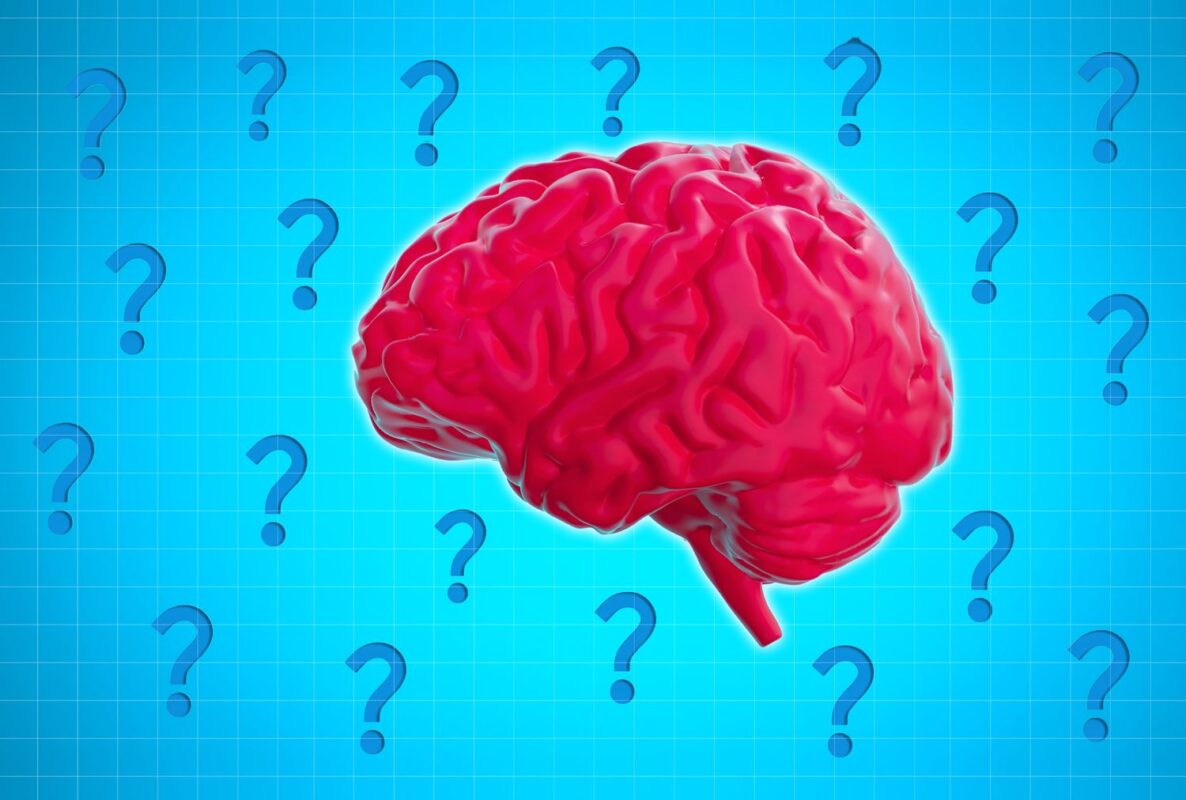Blog
The Best Habit for Staying Sharp After 70

- Social connection helps keep your mind sharp with age.
- Being social supports brain and immune function while connecting you to your community.
- Physical activity, quality sleep and good nutrition all support brain health.
As we age, keeping our minds sharp becomes just as important as staying physically strong. After age 65, about 40% of older adults experience some form of memory loss, and among those over 70, roughly 16% face mild cognitive impairments, such as trouble remembering or finding the right words. Although genetics and preexisting medical conditions play a role in cognitive health and aging, lifestyle habits can make a big difference in keeping your mind engaged.
While many lifestyle factors support cognition and brain health, recent research has found that your social life may play the biggest role. “The best habit for staying sharp after 70 is staying socially connected, through conversation, community activities or simply spending quality time with others,” says Erica Park, M.D., M.B.A., FAAPMR. Read on to learn why experts say social connection is the key to staying sharp in your later years.
Why Social Connection Is Key to Staying Sharp
Whether it’s meeting a friend for a walk, attending community events or hopping on a video call with family members, regular social interaction is crucial for mental sharpness. Here’s why.
It Supports Your Brain Structure and Function
Older adults who rarely interact with loved ones and have low participation in the community are at a higher risk of cognitive decline and dementia. “Regular interaction helps reduce stress, supports memory and keeps the mind engaged,” says Park.
Large long-term studies have found that people who are socially isolated have a 26% to 62% higher risk of dementia than those who stay socially connected. Brain scans reveal that these adults have less gray matter in brain regions that are responsible for memory and learning. These changes are linked to the underexpression of specific genes that protect against Alzheimer’s disease and support healthy brain function.
It Supports a Strong Immune System
Though you may think of physical health and cognitive health as two separate things, they’re closely intertwined. At the genetic level, loneliness causes an underexpression of anti-inflammatory genes and an overexpression of genes related to proinflammatory immune responses. This can decrease the body’s ability to ward off illness and disease.
A healthy immune system not only makes it easier to engage in other activities that support your brain and well-being, but it may also directly influence cognition. Recent research shows that poor immune function and heightened inflammation are associated with cognitive impairment, regardless if dementia is present.
It Keeps Your Mind Engaged
Every conversation or shared activity is like a mini workout for your brain. Whether you’re learning a new card game, discussing the latest read with your book club, picking up a new skill for a community project or having a deep, thought-provoking conversation, you’re engaging and strengthening areas of the brain that keep your mind sharp.
One small study found that older adults who spent at least six weeks learning skills such as drawing, learning a new language or playing music experienced improvements in executive functions—like planning, organizing and problem solving—that lasted up to a year after the learning period.
It May Keep You Active
Regular physical activity has a strong relationship to better cognitive health. “Physical activity boosts blood flow to the brain, supports memory and mood and keeps you socially connected if you’re part of a group or team,” says Katie Schimmelpfenning, RDN. In fact, one study found active older adults had a 37% decreased risk of developing Alzheimer’s disease compared to their inactive peers.
The benefits go both ways, according to a recent study that found higher levels of social support increase physical activity among older adults, while being physically active fosters more socialization. So whether you meet a friend for a walk, take a yoga class or play a game of pickleball, you’ll be sharpening your memory and thinking skills.
How to Incorporate Social Connection
If you’re looking to boost your mental sharpness through connection, here are some ways to become a social butterfly.
Join a Club or Class
Reflect on skills or topics you’ve always wanted to learn—or activities you once loved—and find a way to make them happen. “Join a local club or senior center, or participate in a group activity like a walking group, book club or community class,” suggests Park. These activities offer benefits beyond social connection, including physical activity, learning opportunities and a strong sense of purpose and community.
Schedule Weekly Dates
To hold yourself accountable and reduce decision fatigue about how you spend your time, schedule activities on your calendar. Whether you sign up for a weekly class, go for a morning walk with friends or plan a video chat with a loved one, you’re more likely to stick with a habit when others are counting on you.
Just be sure to start small and build at a pace that feels comfortable and manageable. “The more it becomes part of your weekly rhythm, the more natural—and beneficial—it will feel,” says Park.
Pair It with Another Habit
To get into the routine of scheduling and engaging in social activities, you may need to pair it with a daily habit you already do. “I recommend pairing new habits with things you already do daily,” says Schimmelpfenning. For example, if you sit down at your computer every morning to check your email, spend a few minutes checking your community events calendar or FaceTime with a family member or friend. Other great ideas include running errands or doing household tasks like gardening with a friend, or going for a group walk after participating in worship services or another community gathering.
Other Tips for Keeping the Mind Sharp
- Prioritize Physical Activity. Being physically active at least five times per week may provide the biggest cognitive benefits after 70. Just be sure to start small, emphasize safety and find activities you enjoy.
- Eat a Balanced, Nutrient-Dense Diet. Support your brain health by eating whole, nutrient-dense foods. “Prioritizing nourishing, balanced meals with adequate protein, fruits and vegetables can help lower inflammation and prevent chronic disease with aging,” says Hennis Tung, M.S., RD.
- Continue Learning New Skills. Regularly using your mind is essential for keeping it sharp as you age. Participating in different fitness activities and exploring new topics all support improved cognitive function.
- Get Enough Sleep. There is a strong relationship between aging, poor sleep and cognitive decline. While the relationship between the three is not exactly clear, adults who prioritize sleep and address sleep problems like sleep apnea or insomnia may have added protection against cognitive decline.
Our Expert Take
Staying socially connected does more than just boost your mood—it’s one of the most powerful ways to protect your brain as you age. Social interaction keeps your mind active, supports healthy brain structure, strengthens your immune system and often encourages other healthy habits like regular exercise. Whether it’s joining a community group, calling a friend or finding a workout buddy, prioritizing social connection can help you stay sharper, healthier and happier well into your 70s and beyond.












